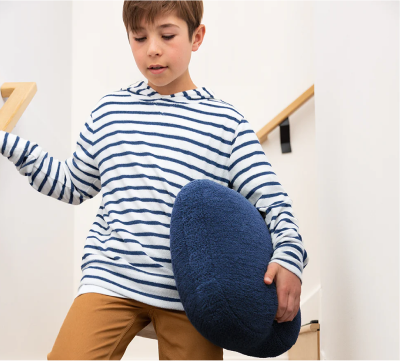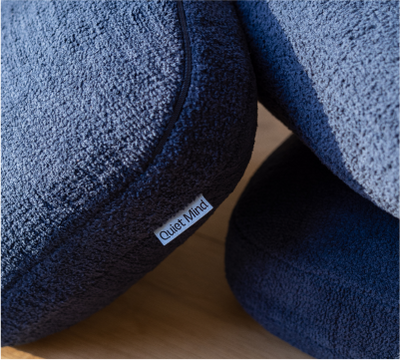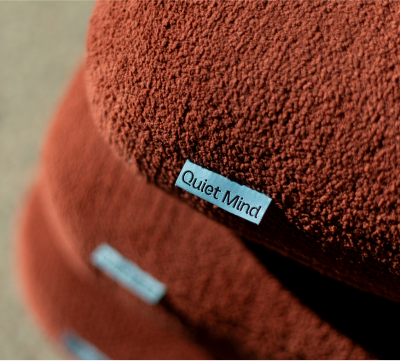Living with ADHD can feel like moving through life with the world turned up too loud. Thoughts race ahead of intention, focus slips through the cracks, and restlessness becomes a constant companion. For many, the experience is not just one of distraction but of deep frustration — a sense that something essential is always just out of reach.
In these moments, the instinct to self-soothe is deeply human. The desire to feel steady or quiet the inner noise often leads to trying quick fixes — like caffeine, supplements, or borrowed routines. These efforts may offer momentary relief, but they rarely address what’s truly needed.
In the sections ahead, we’ll take a closer look at why self-medicating isn’t as helpful as it might seem, what proven treatments can offer instead, and how everyday habits can gently support the ADHD brain.
Why Self-Medication for ADHD Is Not Recommended
Attempting to manage ADHD by self-medication is understandable, particularly when the condition remains undiagnosed or inadequately treated. However, using substances or behaviors without medical supervision can be harmful and is not a substitute for effective treatment.
The Risks of Self-Medicating
Without an ADHD diagnosis, individuals may unknowingly adopt unsafe strategies, including excessive caffeine consumption, soft drinks, or energy drinks, all of which can temporarily stimulate dopamine release but also contribute to dependency, anxiety, and sleep issues. These approaches do not address the neurodevelopmental origins of ADHD or its core symptoms: inattention, impulsivity, and hyperactivity.
Self-Medicating May Lead To:
- Misdiagnosis or masking of underlying mental health disorders
- Caffeine dependence and disrupted sleep cycles
- Escalating symptoms of ADHD
- Increased risk of substance use disorder
Importance of Professional Diagnosis and Monitoring
ADHD is clinically diagnosed using criteria from the Diagnostic and Statistical Manual of Mental Disorders (DSM-5). A proper evaluation ensures that symptoms are accurately identified and not confused with other conditions. Once diagnosed, a treatment plan tailored to the individual can significantly improve their ability to manage ADHD symptoms.
Comparison: Self-Medication vs. Professional Treatment
|
Aspect |
Self-Medicating |
Professional ADHD Management |
|
Diagnosis |
None |
Based on DSM-5 clinical criteria |
|
Treatment Plan |
Unsupervised or reactive |
Personalized and evidence-based |
|
Monitoring |
Absent |
Continuous adjustments and support |
Recommended Professional Treatment Options
Effective ADHD management often involves a multi-layered approach that supports both mental and physical well-being. While there is no single solution that works for everyone, evidence-based treatments—guided by healthcare professionals—can significantly improve day-to-day functioning and quality of life.
Stimulant Medications
Stimulant medications are commonly used in the treatment of ADHD and are often considered a first-line option. These medications may help improve attention, reduce impulsivity, and support better task completion for some individuals.
Examples:
- Methylphenidate-based medications (e.g., Ritalin)
- Amphetamine-based medications (e.g., Adderall)
They are available in both short-acting and extended-release formulations, with specific dosing and duration options depending on the individual. Prescribing and monitoring should always be handled by a licensed healthcare provider to ensure safe and effective use, as outlined in clinical guidelines such as those from the American Academy of Family Physicians.
Non-Stimulant Medications
For individuals who do not respond well to stimulants or prefer an alternative, non-stimulant medications may be appropriate. These treatments may help with symptoms such as inattention or emotional regulation.
Examples:
- Atomoxetine (Strattera)
- Guanfacine (Intuniv)
- Clonidine (Kapvay)
Non-stimulants treatments are often considered in cases of coexisting conditions or when stimulant side effects are problematic. As with any prescription, these should be discussed thoroughly with a medical provider.
Cognitive Behavioral Therapy and Supportive Therapies
Cognitive Behavioral Therapy (CBT) is a structured, skills-based approach that can help individuals with ADHD develop practical strategies for managing daily challenges. It focuses on changing unhelpful thought patterns and building habits that support better focus, organization, and emotional regulation. CBT may address:
- Time and task management
- Emotional regulation
- Organizational skills
In addition to CBT, behavioral interventions, educational support, and coaching can be valuable, particularly for children, adolescents, and adults navigating academic or workplace demands.
|
Treatment Option |
Focus Area |
Examples |
|
Stimulant Medications |
May enhance attention and impulse control |
Ritalin, Adderall |
|
Non-Stimulant Medications |
May regulate attention via different pathways |
Strattera, Intuniv |
|
Cognitive Behavioral Therapy |
Skill-building for executive function & coping |
Individual or group-based therapy |
Note: All treatment decisions should be made in collaboration with a qualified healthcare professional. The safety, effectiveness, and suitability of each option depend on individual needs, health history, and professional evaluation.
Lifestyle Modifications for ADHD Management
Managing ADHD is most effective when complemented by sustainable lifestyle habits that support long-term well-being. These include behavior-focused strategies, mindfulness practices, and the thoughtful use of natural supports tailored to individual needs.
Reducing Distractions and Creating Routine
- Use digital tools or planners to stay on track.
- Minimize external stimuli to improve focus.
- Follow a consistent daily structure to ease transitions.
- Supplements and Nutritional Support
Although not a replacement for prescribed medication, supplements may help ease symptoms for some people with ADHD. Consult your healthcare provider before adding any to your regimen.
|
Supplement |
How It May Help |
Sources |
|
Omega-3 Fatty Acids |
May help improve focus and reduce hyperactivity |
Fish oil, flaxseed |
|
Magnesium |
Supports neurotransmitter health and emotional regulation |
Leafy greens, nuts |
|
Zinc |
Oysters, legumes |
Quiet Mind Tip: While supplements and routines are helpful, talk with your doctor before starting any new regimen to avoid unintended interactions.
Sleep Hygiene and Movement
Sleep disturbances are common among individuals with ADHD, often affecting mood, attention, and overall daily functioning. A consistent nighttime routine, limited caffeine intake—particularly in the afternoon—and reduced exposure to stimulating environments can support more restful sleep.
Weighted pillows can also promote better sleep by providing calming, deep-pressure stimulation that helps regulate the nervous system. For individuals with ADHD, this gentle sensory input may ease restlessness, reduce anxiety, and support a smoother transition into sleep.
Regular physical activity also plays a key role in regulating mood and improving cognitive clarity. Since sleep needs may differ across individuals, especially in those with ADHD, understanding how much sleep is actually necessary becomes an important part of managing symptoms effectively.
Mindfulness and Emotional Resilience
Mindfulness and meditation practices give adults with ADHD valuable tools for slowing down and becoming more aware of their thoughts and behaviors. These techniques encourage a pause between impulse and action, helping to improve emotional regulation, reduce stress reactivity, and strengthen decision-making over time. Even a few minutes of consistent daily practice can contribute to greater resilience and calm in everyday life.
Risks of Self-Medication for ADHD
Taking your health into your own hands might feel empowering—especially when symptoms of ADHD or related conditions become overwhelming. But without proper medical guidance, self-medication can do more harm than good. Here's a deeper look at why it's important to understand the risks:
Misdiagnosis and Inappropriate Treatment
Without a professional diagnosis:
- The root cause may be misidentified or entirely missed. For example, what seems like ADHD could stem from anxiety, trauma, or a sleep disorder.
- Ineffective or harmful remedies may be chosen, such as relying on energy drinks, nicotine, or unregulated supplements that interfere with mental and physical health.
- Overlapping conditions may go undetected, such as depression, learning differences, or hormonal imbalances, all of which require targeted care.
Unintended and Harmful Side Effects
Self-medication often involves unregulated use of:
- Caffeine or stimulants that disrupt sleep cycles and increase restlessness.
- Alcohol or cannabis that may blunt emotional discomfort but impair cognitive functioning.
- Over-the-counter or online supplements that lack dosage control and can interact with other substances.
These can lead to:
- Insomnia, fatigue, or poor sleep quality.
- Increased anxiety, agitation, or mood swings.
- Risk of substance misuse, especially with prolonged use.
Lack of Medical Oversight
Without a healthcare provider:
- Dosage is guesswork. You don’t know how much is too much or what’s safe for your body.
- Subtle symptoms or side effects go unchecked. You may not notice worsening issues until they become serious.
- You lose the benefit of expert adjustment. Proper treatment requires ongoing monitoring to adapt over time as needs change.
- Worsening Symptoms in the Long Run
While some substances may offer short-lived relief, they often:
- Mask underlying problems instead of addressing them.
- Create a cycle of dependency as tolerance builds.
- Allow symptoms to escalate, making long-term treatment more difficult.
The Safer Path: Comprehensive, Professional Care
Managing ADHD or any mental health challenge requires more than quick fixes. A thoughtful, multi-layered treatment plan—guided by medical professionals—can help you:
-
Understand the full picture of your symptoms.
-
Find safe, effective solutions tailored to your needs.
-
Monitor and adjust care as life changes.
True progress comes from informed choices, not impulsive ones. When it comes to your health, guidance matters.
Prescription vs. Self-Medication: A Comparison
Managing ADHD isn't just about the desire to feel better. It’s about choosing a method that respects the complexity of the condition. ADHD requires a thoughtful, long-term approach—one that combines medical expertise, lifestyle strategies, and emotional support.
While many turn to self-medication in search of quick relief, this path often lacks the safeguards needed for true, lasting progress.
Prescription Stimulants: Benefits and Limitations
Pros:
- Clinically proven: Stimulants like methylphenidate and amphetamines are often effective in reducing core ADHD symptoms.
- Customizable: Dosages can be adjusted over time for best results.
- Monitored care: Regular check-ins with a healthcare provider ensure safety and effectiveness.
Cons:
- Potential side effects: Sleep disturbances, anxiety, or appetite loss can occur.
- Risk of dependency or misuse: Especially without proper medical oversight.
- Not ideal for everyone: Some may experience intolerable side effects or require alternative treatments.
Why Self-Medication Isn’t a Substitute for Real Treatment
Self-medication—using caffeine, alcohol, cannabis, or unprescribed stimulants—might offer temporary relief, but it comes at a cost. It often:
- Misses the root cause: Masking symptoms without addressing underlying neurochemical imbalances.
- Lacks personalization: There's no tailored dosing or adjustment for side effects.
- Increases risk: Long-term use can lead to dependency, tolerance, and worsening mental health.
The Value of a Comprehensive ADHD Management Plan
ADHD isn’t a condition with a one-size-fits-all solution. Effective management includes:
- Medical treatment when appropriate, guided by a licensed professional.
- Psychological support to build coping strategies and emotional resilience.
- Lifestyle adjustments such as better sleep, mindful nutrition, and structured routines.
- Ongoing education and self-awareness to understand how ADHD shows up in your life.
A well-rounded approach doesn't just aim for symptom control—it supports self-acceptance, confidence, and long-term mental health.
Conclusion: Talk With Your Doctor First
Self-medicating might feel like a fast way to regain focus, but managing ADHD isn’t about quick fixes. It’s about understanding your brain, building supportive habits, and working alongside professionals who can guide you toward lasting relief.
From stimulant medication to natural remedies for ADHD, what works best is a plan grounded in evidence, adapted to your needs, and monitored with care. Many individuals with ADHD find that, with the right tools, symptoms may become more manageable and well-being improves.
About QuietMind
At Quiet Mind, we believe in the power of simple, natural solutions to ease the mind and body. Our signature weighted pillows are designed to provide comforting pressure, helping to alleviate stress, anxiety, and restlessness.
Whether you're seeking a moment of calm during a hectic day or a more restful night's sleep, Quiet Mind offers tools to support your journey toward tranquility. Discover the soothing embrace of our weighted pillows and find your path to a quieter mind.
FAQ
What are the common signs of ADHD?
Difficulty focusing, hyperactivity, and impulsivity are core symptoms. A professional evaluation ensures an accurate diagnosis.
What are the available treatment options for ADHD?
Treatment often includes medication, therapy, and lifestyle modifications — designed together to support the whole person.
What are the risks of self-medicating with caffeine or other substances for ADHD?
Self-medicating can lead to incorrect treatment, heightened anxiety, sleep disturbances, and potential substance misuse.
What are the recommended treatment options for ADHD?
A combination of prescription medication, therapy, and lifestyle support is often most effective for managing ADHD sustainably.
Can self-medication replace a comprehensive treatment plan for ADHD?
No. Self-medication cannot substitute the nuanced, personalized care a professional treatment plan provides.

















